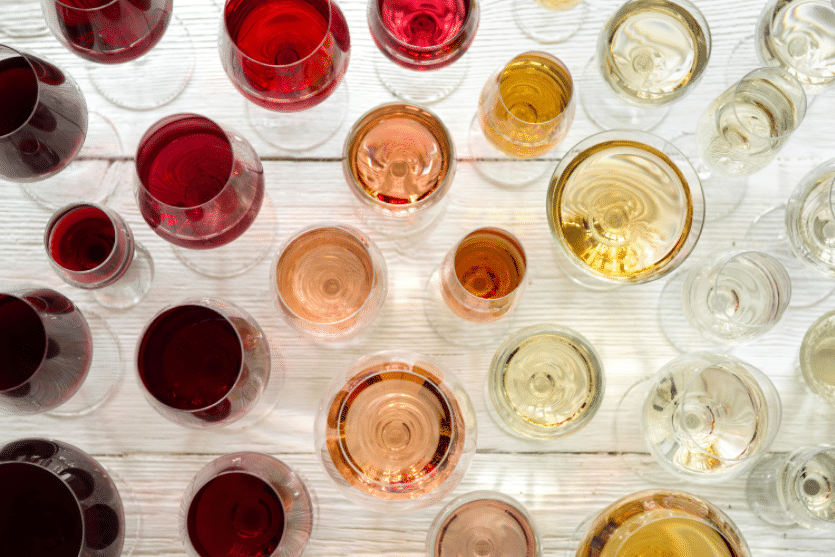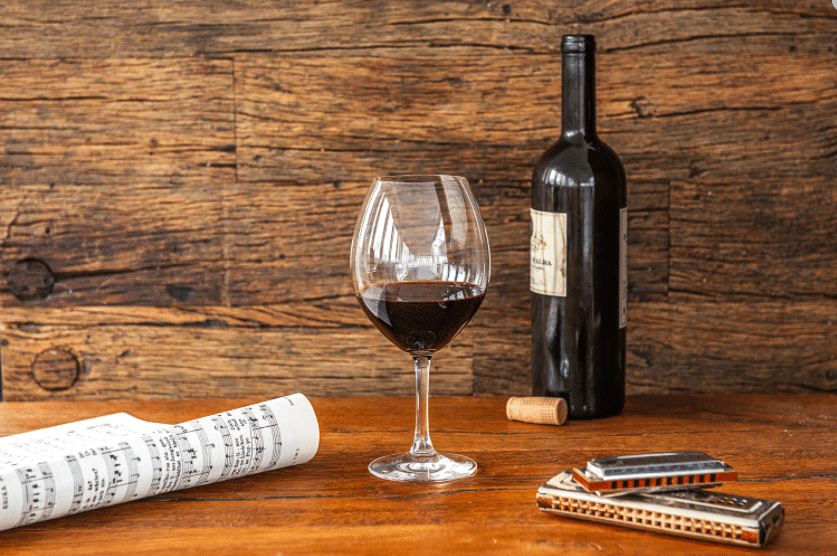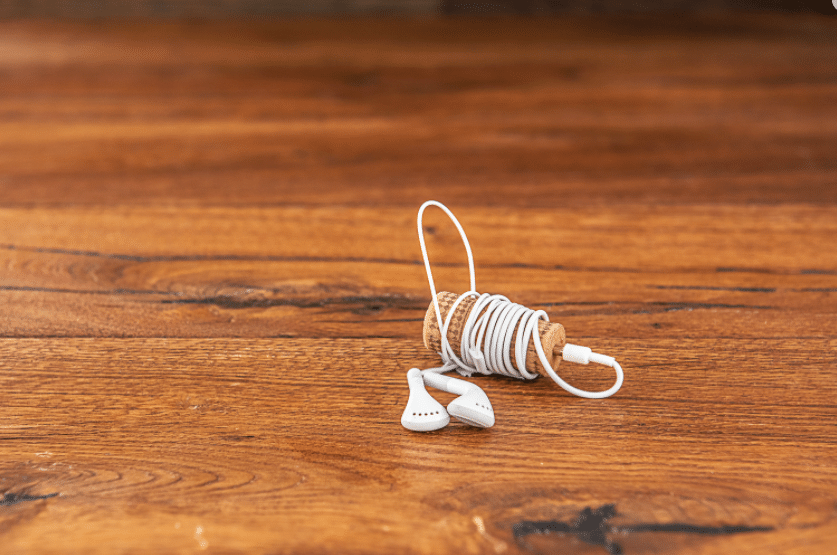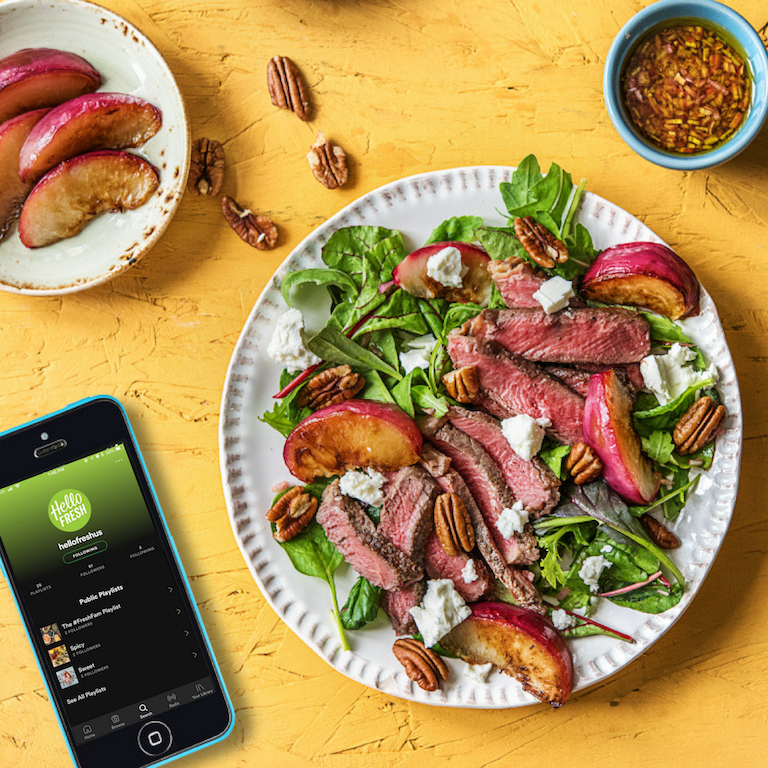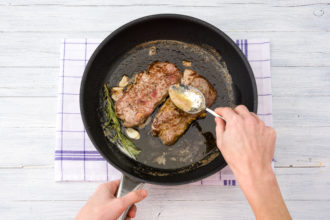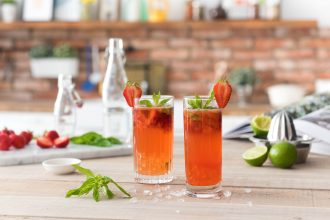How Music Changes The Way You Taste Wine September 1, 2017
Get this: the music you are listening to can change how you taste wine. Whether classical, rock, fast, slow, loud, or quiet — research has proven that music sets the mood for how we describe the wines we drink.
If you haven’t already heard, HelloFresh launched a Wine Club with curated boxes of perfectly paired red, white, and rosé wines delivered to your doorstep! Since my first wine box delivery, I’ve been intrigued by how to best enjoy the wines we send. While it’s well understood that food and wine can beautifully complement each other (after all, what is an evening without adding a little music to amp up the fun?), one thing I’ve come to learn is that there’s a strong, research-backed link between the two. In fact, music can alter many of our perceptions around the experience of wine, including how much we enjoy it, the way it tastes, how fast we drink it, and even how we spend our money when buying wine.
Music affects wine enjoyment
As with many things in life, our experiences are an expression of our perceptions. The way we interpret our emotional state has a big influence on what we actually feel. So, just as lighting a candle sets a certain tone, music has the ability to affect our mood, too. If your day has been a non-stop assault on your ears, mellow and quiet music can help relax and sooth frazzled nerves. On the opposite end, if it’s the end of the work day on a Friday night, you may be craving loud rock music that gets the party started. Regardless of the type, the more you’re enjoying the music playing, the more you’ll like the wine you’re drinking.
Music affects the way wine tastes
Research has shown that we have a predisposition towards assigning certain sounds with specific flavors. Therefore, the taste of sweetness, smoothness, or acidity in wine can be altered by the type of music playing.
- The perceived sweetness of wine is enhanced by music that has a consonant, smooth, and flowing tempo with tinkling, high-pitched, and cheerful piano notes. Listeners of this style of music state that fruit-forward flavors are accentuated more in the wine.
- The perceived smoothness of wine is enhanced by music that hits harmonious major chords. Listeners of this style of music will state that the wine has greater depth and robustness.
- The perceived acidity of the wine is enhanced by music that has a rough, sharp, and staccato pace with dissonant and high-pitched notes. Listeners of this style will describe wine as having a fresher taste with the herbaceous flavors being more prominent.
There’s also a mirroring effect between music and wine; if we perceive the music as being powerful and bold, we will describe the wine in the same way. When the music playing is mellow and soft, we again assign those same attributes to the wine.
Music changes how fast you drink
Both the tempo and loudness of music can change how rapidly you drink. Essentially, the faster the beat of the music and the louder that music is, the quicker you’ll find yourself looking at the bottom of an empty glass. Restaurants employ this knowledge all the time — sometimes to speed up your purchase for the next round of drinks and sometimes to get customers moving during a busy rush.
Music influences your purchasing behavior
Lastly, music affects how we spend our money when buying wine and impacts the types of wine we purchase. This includes where the wines are from, whether they are red or white, and even the total dollars spent.
- The cultural style of music playing influences which countries you buy wine from. You are more likely to choose French wine if listening to French music and German wine when listening to German music.
- The era of music playing also affects where in the world your wine purchase comes from. Older music encourages customers to buy wines from the old world region, whereas newer, more modern music makes people buy wines from the new world regions.
- The genre of music playing changes your preference for selecting a red or a white wine. Rock music with a heavy bass line will sway customers into purchasing reds. In comparison, light and breezy beach music encourages the purchase of white wines.
- The style of music playing affects the total amount of money spent on wine. Classical is the type of music encouraging you to spend the most.
What can we all learn from this? For starters, when the music and wine match, they have a positive synergistic effect on us. Essentially if the music makes you happy, so will the wine you’re drinking — which is important since pleasure is the #1 priority with wine. So the next time you uncork a bottle and it’s not exactly to your liking, try switching the music — you may find you’ll like the wine better.
And remember — if you’re ever at a loss for what song to listen to on HelloFresh’s Spotify, try asking Freddy FreshBot to recommend one for you based on the meal you’re cooking! (He’s great at it.)
For even more tips on how to taste wine, read up on the 3 steps to wine tasting success. And if you haven’t already subscribed to the HelloFresh Wine Club, now’s the time!




